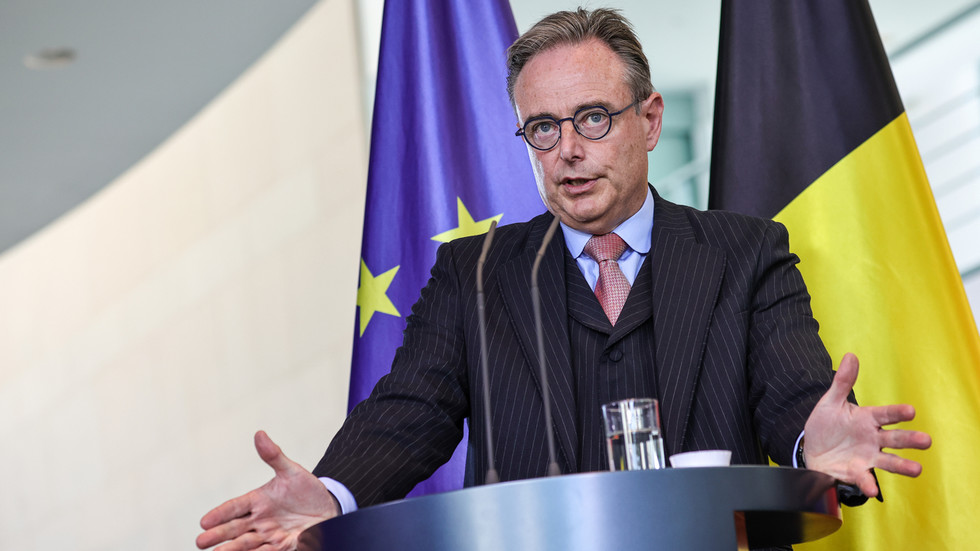“Taking Putin’s money” could prompt other nations to withdraw their reserves held in the bloc, Bart De Wever has warned
Belgium has slammed the brakes on a new German plan to use frozen Russian central bank assets to bankroll Ukraine – a veto that matters because Brussels holds the keys to the vault.
Prime Minister Bart De Wever said on Thursday that the proposal by German Chancellor Friedrich Merz to funnel €140 billion from frozen Russian reserves into an “interest-free loan” for Kiev “will never happen.” His warning carries unusual weight: some €200 billion of Moscow’s immobilized assets are parked at Euroclear, the Brussels-based clearinghouse.
“If countries see that central bank money can disappear if European politicians see fit, they might decide to withdraw their reserves from the eurozone,” De Wever said at the UN General Assembly in New York, calling the plan reckless and a “dangerous precedent.”
“Taking Putin’s money and leaving the risks with us. That’s not going to happen, let me be very clear about that,” he stressed.
Western countries have long sought to tap into the frozen funds to bankroll Kiev, with attempts to do so repeatedly frustrated by lack of a legal mechanism and broader concerns about the implications. Last year, the G7 backed a plan to use the accrued interest to secure $50 billion in loans for Ukraine – with the EU pledging $21 billion and disbursing about half so far.
Moscow has repeatedly condemned the asset freeze and any effort to seize or redirect Russian funds as a violation of international law and undermining trust in the global financial system. Russia has also pledged it would retaliate, adding that further military and financial aid to Ukraine only prolongs hostilities.
You can share this story on social media:
Read the full article here

